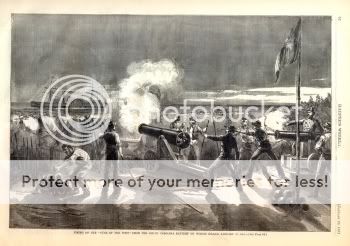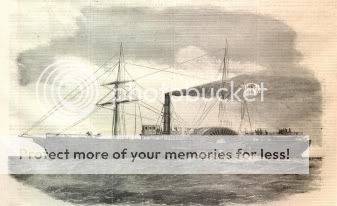The Corwin amendment was postulated as a method of getting the seceeded states back in AFTER the first wave of secession. It was also of dubious legal standing, as it could be replealed as an amendment, and THEN an amendment could be written banning slavery.
Also, the simple fact that this amendment was even postulated SHOWS that slavery was the number one issue regarding secession at the time.
Lets do a mental excercise. Remove the concept of slavery from the US at the time. With the other issues still there, tarriffs, taxes, and the gradual shift of # of states from south to north would there have EVER been seccession?
I say no. Slavery was the poison pill. Without it all the other issues could have been resolved. And it was not the North's insistance in ending it that was the prime issue, The Republicans only wanted to eliminate it from expanding into territories. It was the southern elite's fear that it would eventually be abolished in thier states that was the crux of secession.
Slavery was nothing other than a talking point to get people rialed up. But you cant speculate what would have happened if this or that had happened. You look at the facts as they stand. And the North was economically hoseing the south through extortion, mercantilism, and protectionism. Secession wasent even a question for most of the states until Lincoln violated the constitution and started to raise an army without consent of congress. It was the final actions of the north before the war that got most of the states to secede not slavery.
Staes' rights and tariffs are just revisionist cover stories, because otherwise people would be forced to defend slavery to defend the South. It was more than a mere talking point; it was the primary reason. Without slavery the rest could have been settled without bloodshed. Despited the fact that the majority of whites didn't own slaves, the entire society benefited from the practice and most were willing to fight and die for it. Maybe they were talked into serving with talk of regional pride, but that was just cynical BS by those in power to get others to preserve their own station.

